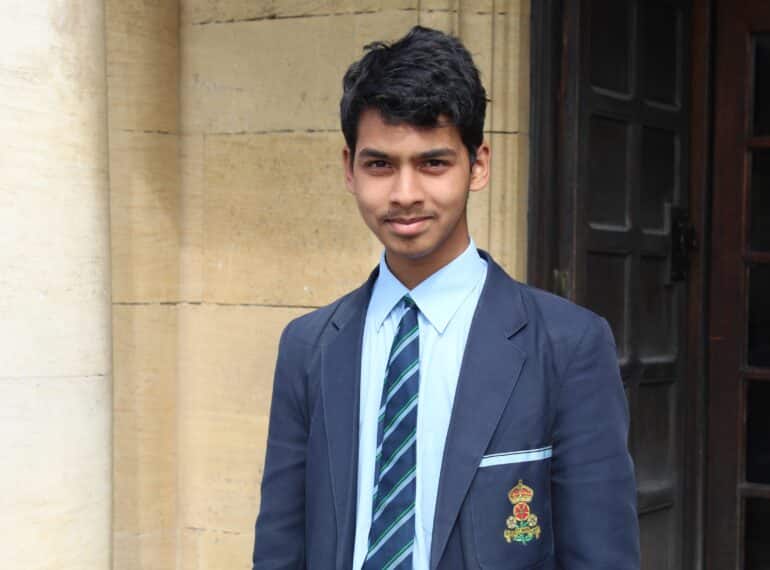
QE pupil Hisham Khan has been named the UK winner of an international space competition and reached the top 5% of competitors from around 100 nations across the world.
In addition to taking first place in the UK, Hisham, who goes into Year 11 this week, won a Gold Honour in the International Astronomy and Astrophysics Competition for his performance internationally.
Other awards in the competition went to Shreyas Mone, who is entering Year 12, and to Queen Elizabeth’s School itself.
Assistant Head (Pupil Involvement) Crispin Bonham-Carter said: “Competitions are an excellent way of challenging pupils to give of their best and learn more about a field in which they are interested. My congratulations go to Hisham on his success – a reward for all the hard work he put in.”
The International Astronomy and Astrophysics Competition (IAAC) is a science competition that attracts thousands of competitors annually.
To achieve his success, Hisham had to negotiate the qualification round (five astronomy problems) and pre-final round (six problems, two of which involve engaging with recent scientific research). These, he says, mostly involved Physics calculations relating to space.
 The final round, a multiple-choice online examination with 20 questions, was more about astrophysics knowledge. To prepare, he looked at previous years’ questions and also read around the subject. The round was sat online at home, but recorded to prove there had been no cheating.
The final round, a multiple-choice online examination with 20 questions, was more about astrophysics knowledge. To prepare, he looked at previous years’ questions and also read around the subject. The round was sat online at home, but recorded to prove there had been no cheating.
Hisham, who hopes to take Mathematics and Physics at A-level after his GCSEs next year, plans to maintain his interest in astrophysics.
In announcing the results, a representative of the IAAC team said Hisham had “achieved outstanding results throughout the tournament despite very fierce competition”.
Hisham himself was modest in victory: “This was a new topic, but one I find interesting. I was surprised to be the top performer in the UK, which went beyond what I was hoping for.”
The IAAC organisers also reward those who support the competition. Shreyas Mone, who is an IAAC ambassador, was the sole winner internationally of the Award for Most Finalists, while QE similarly took the sole School Award for Most Finalists.

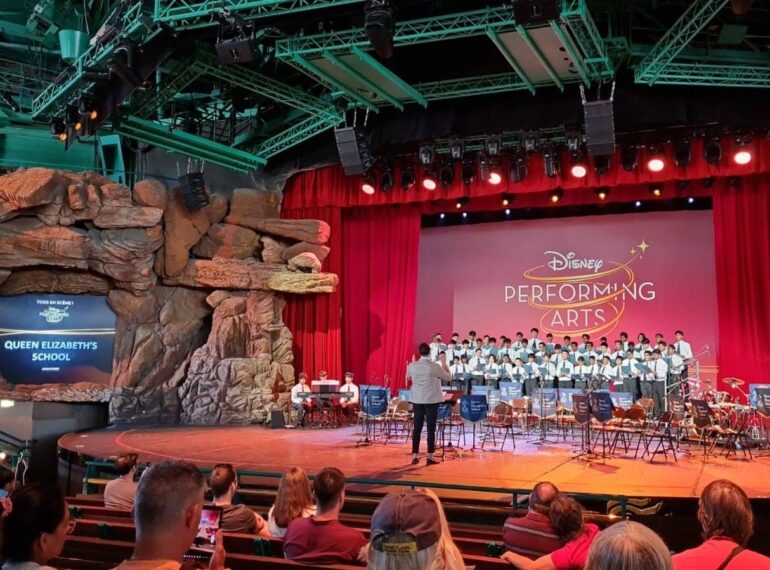
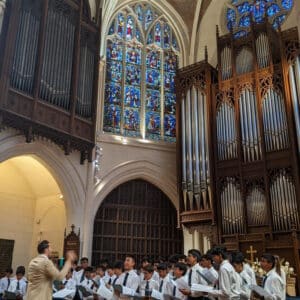 Fifty-two boys from Years 8–13 combined concerts with seeing the sights of Paris during their five-day tour.
Fifty-two boys from Years 8–13 combined concerts with seeing the sights of Paris during their five-day tour.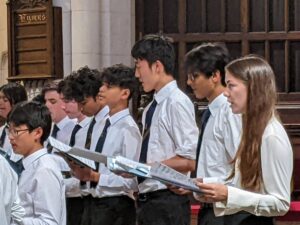 Travelling by coach and ferry, the boys’ first visit was to the Chocolaterie Beussent in Normandy, where they were told on a guided tour how chocolate is made from cocoa beans and learned the history of the small company.
Travelling by coach and ferry, the boys’ first visit was to the Chocolaterie Beussent in Normandy, where they were told on a guided tour how chocolate is made from cocoa beans and learned the history of the small company.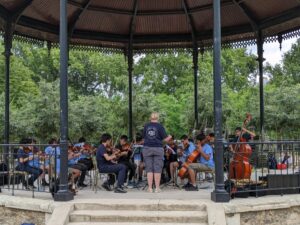 On the same busy day, they went on a walking tour, seeing the restoration work going on at Notre Dame following the disastrous fire and visiting the Louvre, Place de la Concorde, the Tuileries and the Champs-Élysées.
On the same busy day, they went on a walking tour, seeing the restoration work going on at Notre Dame following the disastrous fire and visiting the Louvre, Place de la Concorde, the Tuileries and the Champs-Élysées.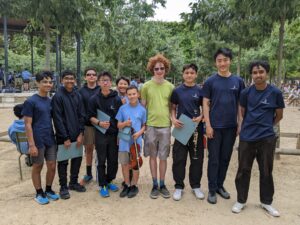 On the final day, they climbed the Arc de Triomphe before setting off home, where they experienced a four-hour delay – the only hitch in the packed programme.
On the final day, they climbed the Arc de Triomphe before setting off home, where they experienced a four-hour delay – the only hitch in the packed programme.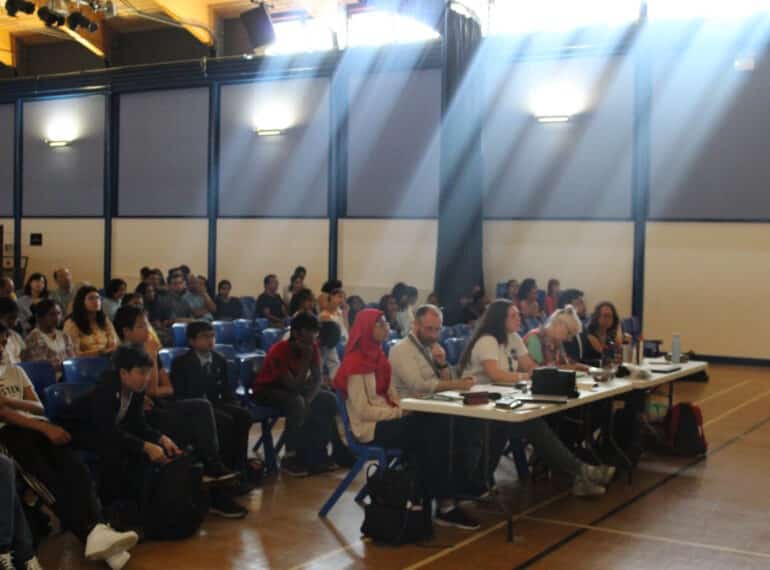
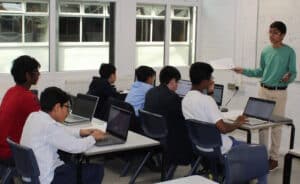 Four teams – two from each school – battled it out in the Galactic Challenge, which was hosted by QE. Helping out on the Saturday of the competition were a trio of Old Elizabethans who are themselves veterans of space competitions.
Four teams – two from each school – battled it out in the Galactic Challenge, which was hosted by QE. Helping out on the Saturday of the competition were a trio of Old Elizabethans who are themselves veterans of space competitions.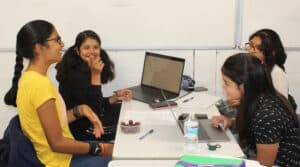 Galactic Challenge, which is for students aged 10-14, is the sister competition of the UK Space Design Competition (UKSDC), which is for those aged 15–18.
Galactic Challenge, which is for students aged 10-14, is the sister competition of the UK Space Design Competition (UKSDC), which is for those aged 15–18.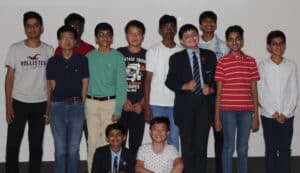 The RFP asked companies to deal with various challenges. These included:
The RFP asked companies to deal with various challenges. These included: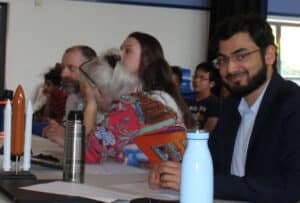 The judges’ panel featured staff from the Space Science & Engineering Foundation, QE Head of Physics Jonathan Brooke, Dr Flore Faille, Head of Physics at HBS, and Aadil Kara (OE 2010–2017).
The judges’ panel featured staff from the Space Science & Engineering Foundation, QE Head of Physics Jonathan Brooke, Dr Flore Faille, Head of Physics at HBS, and Aadil Kara (OE 2010–2017).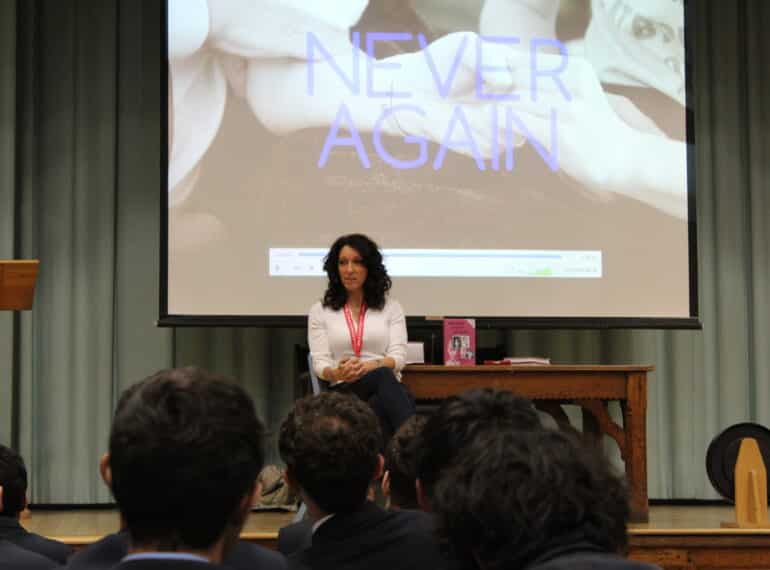
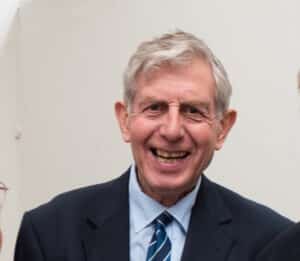 The visit had been suggested to the Headmaster, Neil Enright, by Old Elizabethan Alan Solomon (OE 1951–1957), pictured here.
The visit had been suggested to the Headmaster, Neil Enright, by Old Elizabethan Alan Solomon (OE 1951–1957), pictured here.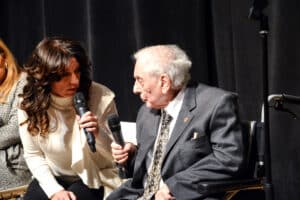 In the film, Mr Wermuth, pictured here with Ilana, explains how in 1942 he broke out of Klaj ammunition camp in Poland when he learned that Hitler was scheduled to pass through the village.
In the film, Mr Wermuth, pictured here with Ilana, explains how in 1942 he broke out of Klaj ammunition camp in Poland when he learned that Hitler was scheduled to pass through the village.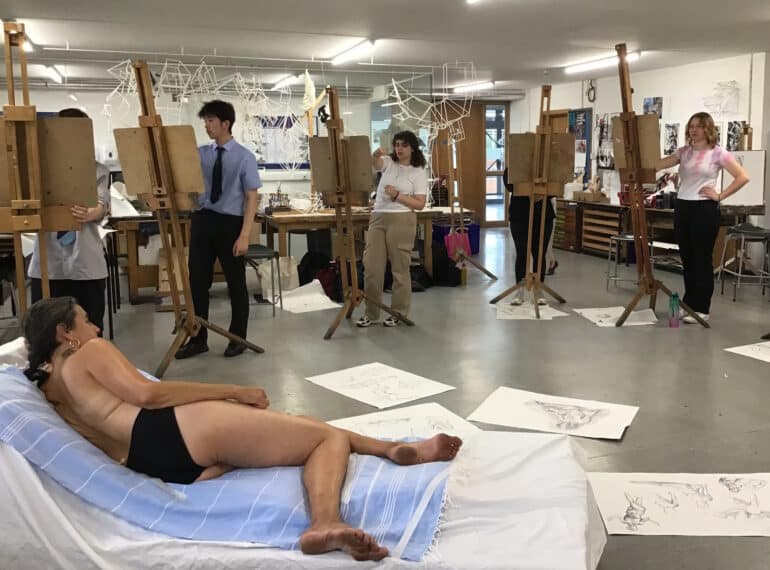
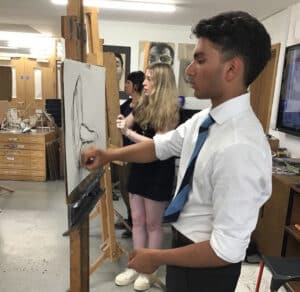 Together with the girls’ participation in filming a promotional video and in a Sketch-off event held as part of QE’s Design Festival earlier in the Summer Term, the life-drawing sessions mark an expansion of the work of the QE Together partnership, which had previously focused on community activities.
Together with the girls’ participation in filming a promotional video and in a Sketch-off event held as part of QE’s Design Festival earlier in the Summer Term, the life-drawing sessions mark an expansion of the work of the QE Together partnership, which had previously focused on community activities.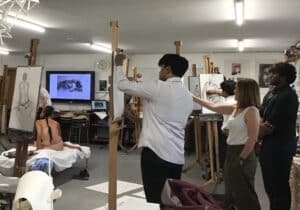 Led by pupils from the two schools, QE Together continued its community activities, with musicians coming together for another concert for care home residents.
Led by pupils from the two schools, QE Together continued its community activities, with musicians coming together for another concert for care home residents.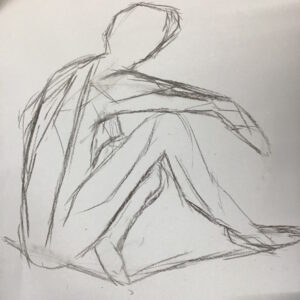 QE Together is one of the newest of QE’s partnerships. The School also has firmly established academic partnerships with North London Collegiate School and The Henrietta Barnett School.
QE Together is one of the newest of QE’s partnerships. The School also has firmly established academic partnerships with North London Collegiate School and The Henrietta Barnett School.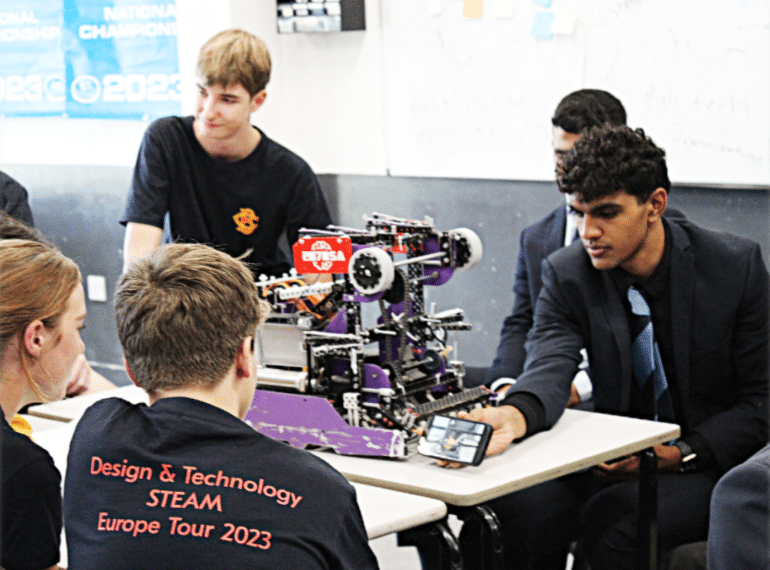
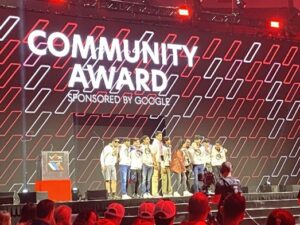 The six IQ (Year 8 and 9) and three VRC (Year 10) teams picked up a string of trophies in Dallas, while also taking time to sample the sights of the city.
The six IQ (Year 8 and 9) and three VRC (Year 10) teams picked up a string of trophies in Dallas, while also taking time to sample the sights of the city.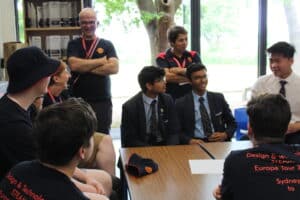 The 60-strong group of 15–17 year-old Australians called in during their trip to London and Paris. Their school, Barker College, is a large, high-achieving independent school on the North Shore of Sydney.
The 60-strong group of 15–17 year-old Australians called in during their trip to London and Paris. Their school, Barker College, is a large, high-achieving independent school on the North Shore of Sydney.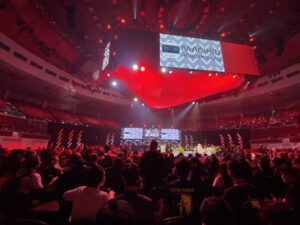 At the senior level, the 19 VRC competitors collectively came away with six awards, including an Inspire Award and the Promote Video Online Challenge Award. Two of the three teams – Nova and Shattersquad – battled through tough early competition and successfully made it through to their divisional knockout stages.
At the senior level, the 19 VRC competitors collectively came away with six awards, including an Inspire Award and the Promote Video Online Challenge Award. Two of the three teams – Nova and Shattersquad – battled through tough early competition and successfully made it through to their divisional knockout stages.